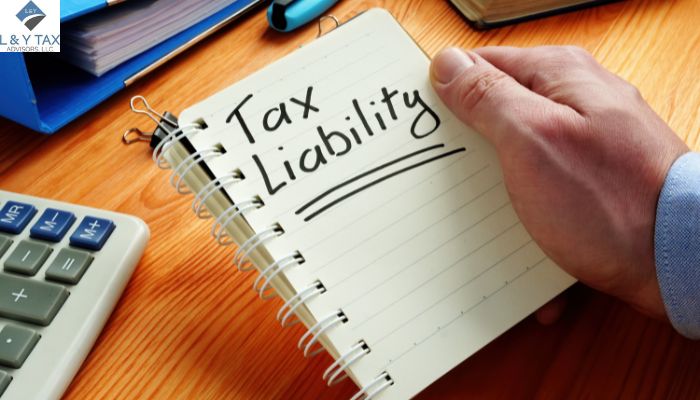
Do Real Estate Agents Qualify for QBI?
Humans can’t escape their destiny – so is the case with real estate agents who strive hard to navigate through the complex maze of property transactions and negotiations while trying to sustain an amicable relationship with their clients. However, the tax season arrives with unique grapples, compelling them to contemplate the fact, ‘Do real estate agents qualify for QBI?’. At this point, availing tax consulting services becomes a necessity.
One of the primary objectives of a real estate agent is to ensure ample provision of assistance to help the buyers and sellers achieve their targets in the world of property dealings. Exploring the answers to do real estate agents qualify for QBI or not offers a bundle of advantageous opportunities so you can sail smoothly through the relevant entangled regulations for which you have only one choice – compliance.
What is QBI?
Before delving into the details of ‘Do real estate agents qualify for QBI?’, it is mandatory to understand the relevant core concepts. In the Internal Revenue Service (IRS), the term Qualified Business Income (QBI) refers to the amount you earn from your business, regardless of its expansion in the industry. This income is generally taxed as a standard or basic income on your personal income tax return.
QBI comprises income from S corporations, sole proprietorships, partnerships, and many other trusts and estates. However, it does not include wages, capital gains or losses, dividends, interests, or other non-business income. One of the most advantageous benefits is that QBI is often taxed at lower rates as compared to other sorts of income.
Qualified business income is included as an essential part of the Tax Cuts and Jobs Act (TCJA) 2017, which provides a great deal of convenience to small or sturdy business owners. Qualified or eligible candidates can enjoy deductions up to 20% of their QBI from the taxable income. Nonetheless, all sorts of trading businesses can automatically qualify for this type of deduction. You need to fulfill specific criteria of the IRS to avail of the maximized taxation benefits.
IRS Criteria for Qualified Business Income Deduction (QBID)

To find the answer to, ‘Do real estate agents qualify for QBI?’, it is paramount to understand the specific standards of the IRS that you need to qualify successfully.
Qualified Business or Trade
It is important to recognize real estate as a qualified business or trade to be suitable for QBID. According to the TCJA 2017, all sorts of businesses and trades are eligible except specified service trade or business (SSTB). However, real businesses do not fall in the category of SSTBs because they comprise professions such as medicine, law, and accounting. That’s why these agents are on the right track.
Income Threshold
Taxpayers having taxable income less than a specific amount ($164,900 for single filers and $329,800 for joint filers in 2021) are eligible for the QBI deduction. Real estate agents earning less than these amounts can deduct up to 20% of their qualifying business income.
Wages and Capital Limits
Taxpayers who earn more than the usual income limit may still be eligible for the QBI deduction if they fulfill specific wage and capital limits. It implies that if a real estate agent’s income exceeds the threshold, they may be eligible for the deduction if they pay a considerable salary to staff or make significant capital improvements in their firm.
If you earn more than the usual income limit, you may still be eligible for the QBI deduction even if you fulfill specific wage and capital limits.
If a real estate agent’s income exceeds the threshold, they are eligible for the deduction if they pay a considerable salary to staff or make significant capital improvements in their firm.
Do Real Estate Agents Qualify for QBI?
You can’t escape your destiny – so is the case with real estate agents. They strive hard to navigate the complex maze of property transactions and negotiations while trying to sustain an amicable relationship with their clients. However, the tax season arrives with peculiar grapples, compelling them to contemplate, ‘Do real estate agents qualify for QBI?’ At this point, availing tax consulting services becomes a necessity.
In property dealing, a real estate agent’s primary objective is to ensure assistance to help the buyers and sellers achieve their targets. Exploring the answers to ‘Do real estate agents qualify for QBI?’ offers a bundle of advantageous opportunities so you can sail smoothly through the relevant entangled regulations for which you have only one choice – compliance.
Qualified Business or Trade
Real estate operations, as previously stated, often qualify as a “qualified trade or business” under the TCJA. Real estate brokers participate in a variety of commercial operations that clearly satisfy this definition, such as property management, marketing, and negotiating.
Income Threshold
Whether a real estate agent is eligible for the QBI deduction is frequently determined by their annual income. They are usually entitled to the entire 20% deduction if their taxable income is less than the stipulated level. This deduction has the potential to lower their tax bill while increasing their after-tax income drastically.
Wages and Capital Limits
If a real estate agent’s income exceeds the threshold, they may still be eligible for the QBI deduction if they fulfill the wage and capital limits. Many real estate brokers work as sole proprietors or small businesses, which do not need a large workforce or large financial expenditures.
On the other hand, those who have workers or invest in their company infrastructure may be entitled to a partial deduction, depending on their circumstances.
For real estate professionals navigating the intricacies of taxation, it is important to understand for real estate professionals IRS guidelines are crucial. Tax deductions for real estate agents can significantly reduce taxable income, particularly when leveraging specific provisions. A qualified real estate professional can benefit from distinct tax advantages that are unavailable to hobbyists. By fulfilling the IRS’s criteria, such as spending over 750 hours per year in real estate activities, these professionals unlock potential savings. These deductions and benefits cover various expenses, from travel to home office costs, crucial for optimizing financial results in this competitive industry. Staying informed ensures real estate agents maximize their tax position effectively.
How do you calculate your QBI?
To calculate your Qualified Business Income (QBI) deduction, observe these key steps:
- Determine your QBI: Start together with your business’s net income (after costs) from a skip-thru entity (e.g., sole proprietorship, S enterprise, or partnership). Exclude non-business profits like capital profits, dividends, and hobbies.
- Calculate the 20% Deduction: Multiply your QBI by 20% for the capability deduction amount. For instance, if your QBI is $100,000, the deduction is $20,000.
- Apply Income Limits: Your taxable income influences the deduction. If it exceeds positive thresholds ($182,100 for unmarried filers, $364,200 for joint filers in 2023), the deduction can be limited based on your enterprise kind and earnings.
- Special Rules for Certain Businesses: Specified Service Trades or Businesses (SSTBs), like law or consulting, may also face additional boundaries or section-out of the deduction if their taxable earnings are too high.
How do I claim Qbi?
Ensure you file Form 8995 or Form 8995-A to assert your QBI deduction. Consider consulting a tax expert to optimize your deduction and navigate any complexities.
To declare the Qualified Business Income (QBI) deduction, comply with these steps:
- Determine Eligibility: Ensure your business qualifies as a skip-via entity (sole proprietorship, partnership, or S organization) and you’ve certified enterprise income.
- Calculate Your QBI: Identify your net commercial enterprise income (after fees) and exclude non-enterprise profits such as capital profits and dividends.
- Fill Out the Necessary Forms: Complete Form 8995 (or Form 8995-A for better profit earners) to calculate your QBI deduction.
- Report on Your Tax Return: Include your finished Form 8995 and Form 1040 when filing your taxes.
- Consider Income Limits: If your taxable earnings exceed positive thresholds ($182 hundred for single filers or $364,200 for joint filers in 2023), the deduction can be limited, mainly for Specified Service Trades or Businesses (SSTBs).
Consult a tax expert to maximize your deduction and ensure compliance.
How to Maximize Your QBI Deduction as a Real Estate Agent
Real estate agents can get the most out of their QBI deduction by being proactive about how they run their businesses and staying informed regarding IRS guidelines. One of the primary ways to boost potential for a higher deduction is through business decisions like investing in infrastructure or compensating employees. For instance, such real estate salespersons who have employees or who invest heavily in property management and marketing would be able to take a partial QBI deduction even if their income is above the given thresholds. Also, maintaining extensive records of costs from things like office supplies, marketing costs, and professional development can increase the percentage of business income that’s eligible for a deduction.
Another important way to maximize the QBI deduction is to ensure that your real estate activities are being treated as a trade or business. Passive income, such as rental or royalty income, typically is not includible unless it is actively managed. By making you play a material personal work and material operating role in your real estate operations, you give yourself the best chance of being able to take advantage of the QBI deduction. Collaborating with a tax accountant versed in real estate can not only help you navigate the rules, but it can also provide guidance on how to best utilize any possible savings.
In search of a reputable Tax Preparer in Houston, TX? Get expert help with your tax filing, deductions, and planning. Book an appointment today!
Do Royalties Qualify for QBI?
It is the Qualified Business Income (QBI) deduction, provided under the Tax Cuts and Jobs Act, which allows taxpayers with a qualifying tax status to claim up to 20% of qualified business earnings. However, certain types of income are not eligible, and most royalties fall into a grey area. Generally speaking, royalties will not meet the criteria for the QBI deduction if they are classified as an income stream that is not tied to a business or trade. For example, royalties derived from licensing intellectual property with no active role typically do not count. However, if these royalties come from a business or trade, such as authors who are actively involved in licensing or publishing their work, they may be eligible under certain circumstances. It is essential to determine the type of royalty earnings and whether they are tied to a qualified business or trade. Consult a tax professional for eligibility determination, since IRS regulations and interpretations can be highly complex and based on the specific circumstances.
Does Passive Income Qualify for QBI?
No.
The QBID generally is not allowed on passive income, such as rental income. However, the authorities may consider your rental activity as non-passive if IRS Section 162 classifies it as a trade or business. So, in this case, it might qualify for the QBID.
What Does Not Qualify for the QBI?
Specific types of income do not qualify for the QBID. These include:
- Investment-related income, like capital gains or losses
- Interest income not tied to a business
- Wage income
- Income from outside the US not connected to a US business
- Dividend income, including qualified REIT dividends and payments in lieu of dividends
- Annuities not related to a business
- Gains from commodities or foreign currency transactions
- Notional principal contracts
- Reasonable compensation from an S corporation
- Guaranteed payments to partners or service payments not made in a partner capacity
- Publicly traded partnership (PTP) income
Does the QBI Deduction Lower Your Self-Employment Tax?
No.
QBID does not decrease your self-employment tax. The deduction does not alter the income on Schedule SE for self-employment tax. Instead, it simply lowers your taxable income on Form 1040.
The QBID does not affect your self-employment tax, which is computed separately, even if it lowers your overall income tax.
Final Thoughts
To understand do real estate agents qualify for QBI, they must fulfill the IRS conditions. As long as their real estate operations are designated a qualified trade or business, and their income falls below the required criteria, they can benefit from this substantial tax deduction. Even if their income exceeds the threshold, fulfilling wage and capital requirements may still qualify them for a partial deduction. To get the most out of this tax break, real estate agents must stay educated, keep good records, and seek advice from tax advisors when necessary. The QBI deduction may be a significant tool for minimizing tax burden and boosting the financial well-being of real estate agents.
FAQs:
1. Are real estate agents eligible for the QBI deduction?
Yes, but with conditions. Most real estate agents qualify if they operate as pass-through entities (sole proprietors, LLCs, S-corps, or partnerships) and meet IRS income thresholds. However, those classified as employees (e.g., W-2 agents under a brokerage) do not qualify.
2. What requirements must a real estate agent meet to claim QBI?
The IRS considers real estate agents eligible if:
-
-
They are independent contractors (1099 workers, not W-2 employees).
-
Their work qualifies as a “trade or business” (active income, not passive investments).
-
Their taxable income falls below 191,950(single)or383,900 (joint) (2024 limits) for full deductions. Higher incomes face phaseouts.
-
3. How is the QBI deduction calculated for real estate agents?
The deduction is generally 20% of qualified business income (net commissions minus expenses). Example:
-
-
If your net real estate income is 100,000∗∗,youmaydeduct∗∗20,000, reducing taxable income.
-
-
Note: High earners may face limits based on W-2 wages or business assets.
4. Can rental income from real estate agents qualify for QBI?
Typically no, unless the agent is actively engaged in real estate development, leasing, or management as a trade or business. Most rental income is considered passive and excluded from QBI.
Read More:
list three things you should look for when hiring a tax professional


